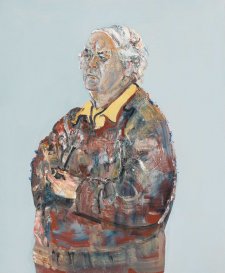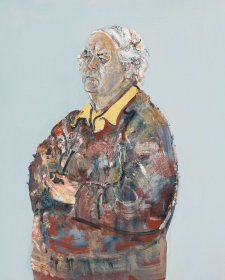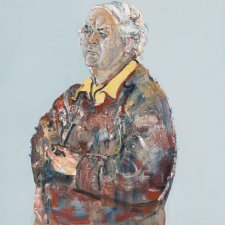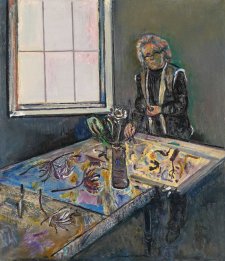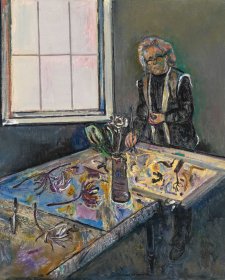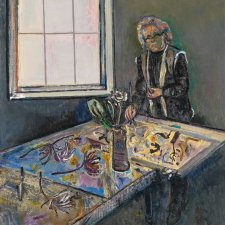Stephen Murray-Smith (1922-1988), writer and editor, was educated at Geelong Grammar and the University of Melbourne before serving in New Guinea during World War 2. After the war he lived in London and worked for Telepress news agency in Prague for several years. One of his first publications on his return to Melbourne was There's No Iron Curtain!: An Australian Journalist in Eastern Europe (1952). A member of the Communist Party of Australia for thirteen years, he was a co-founder, with comrades Frank Hardy and Eric Lambert, of the Melbourne Realist Writers' Association. In 1954, the year he wrote an essay on Indo-China for the Australian Peace Council, he and Eric Lambert co-founded the magazine Overland, its motto 'Temper Democratic, Bias Australian'. Distanced from the Party after 1956, it was not long before the magazine proved to have 'failed to attract quality writing from traditional workers', proceeding to develop the mix of fiction and poetry, reportage, analysis and review that appealed to its university-educated, left-wing readers. From 1973 Murray-Smith edited Melbourne Studies in Education. His books included Henry Lawson (1962), Indirections: A literary autobiography (1981), Right Words: a guide to English usage in Australia (1987) and Sitting on penguins: people and politics in Australian Antarctica (1988), the latter with artwork by Jan Senbergs. Having written his doctoral thesis on the history of technical education in Australia he co-wrote The Tech, a history of RMIT, for its centenary in 1987. Amongst his great output of essays is 'The Novel and Society' included in Geoffrey Dutton's The Literature of Australia (1964); he wrote the introduction to a 1977 edition of Matthew Flinders's account of his cat, Trim; he edited The Dictionary of Australian Quotations (1984). While writing Mission to the Islands: The missionary voyages of Canon Marcus Brownrigg 1872-1885 (1979) he campaigned for the preservation of the chapel built for Aboriginal deportees to Wybalenna, Flinders Island. He left an enormous archive, which would serve, he said, to 'document exactly what it was like to be an academic in Melbourne in the later part of the twentieth century.' He is commemorated in the annual Murray-Smith Lecture at the State Library of Victoria.
- About us
- Support the Gallery
- Venue hire
- Publications
- Research library
- Organisation chart
- Employment
- Contact us
- Make a booking
- Onsite programs
- Online programs
- School visit information
- Learning resources
- Little Darlings
- Professional learning
